Personal Growth Values

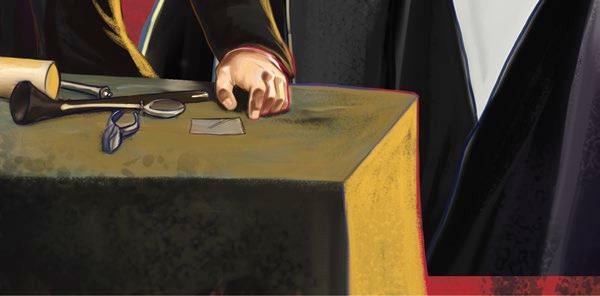




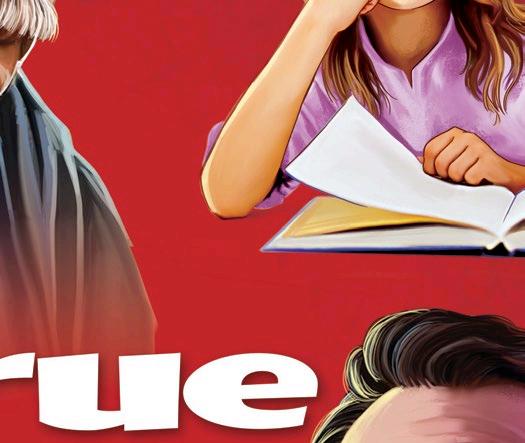



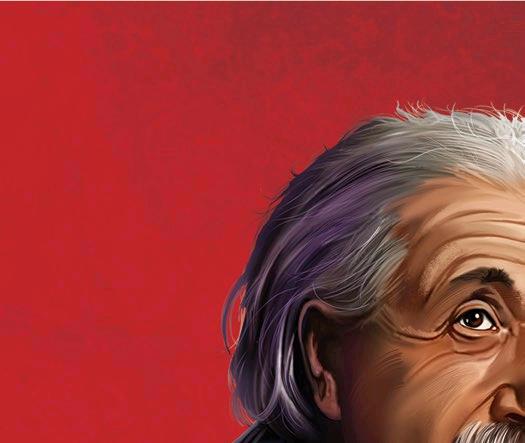 Mirian Montanari Grüdtner
Mirian Montanari Grüdtner
Growing up is both a challenge and an adventure. On these pages, we invite you to discover the stories and experiences of people who took on the challenge. You will read about lives of both famous and unknown people who had circumstances similar to yours or perhaps even more difficult challenges. Each of their stories is related to a value that will help you grow. After each story, you will find a section entitled Especially for You. Moreover, you will find the section Let’s Get to Work! with a fun activity that lets you experience the proposed value and learn how to integrate it positively into your life.

The author, Mirian Montanari, a teacher and educator with a vast experience, narrates the story of Helen Keller and
her challenges and how she learned that discipline is good when it becomes self-discipline. The author also shows the best “revenge” that you can give to someone who has mistreated you; how prudence and kindness are stronger than arrogance; how positive affirmation helped a street child grow and develop to become a great man. You will also discover how a rooster can relate to responsibility and how joy and laughter can help to cure diseases. You will realize the importance of creativity and effort and how the curiosity of the child Albert contributed to the advancement of all humanity. We encourage you to discover that and much more for yourself. You could also become a True Hero!
Index Prologue 7 1. Self-discipline 9 2. Prudence 17 3. Positive Self-esteem 25 4. Responsibility 33 5. Good Mood 41 6. Creativity 49 7. Effort 57 8. Curiosity 65 9. Patience 73 10. Love of Reading 81 11. Spirit of Sacrifice 89 12. Diligence 97 13. Personal Hygiene 105 14. Economics 113 15. Perseverance 121 16. Healthy Life 129 5
The Editors
Prologue
Self-discipline
Undisciplined Youngster
Revenge of the Indian
What would you think if you were to see a child on the ground kicking and screaming, throwing a temper tantrum to get their way? Perhaps you would say to yourself: “How awful! What a bad-mannered child!” Right?
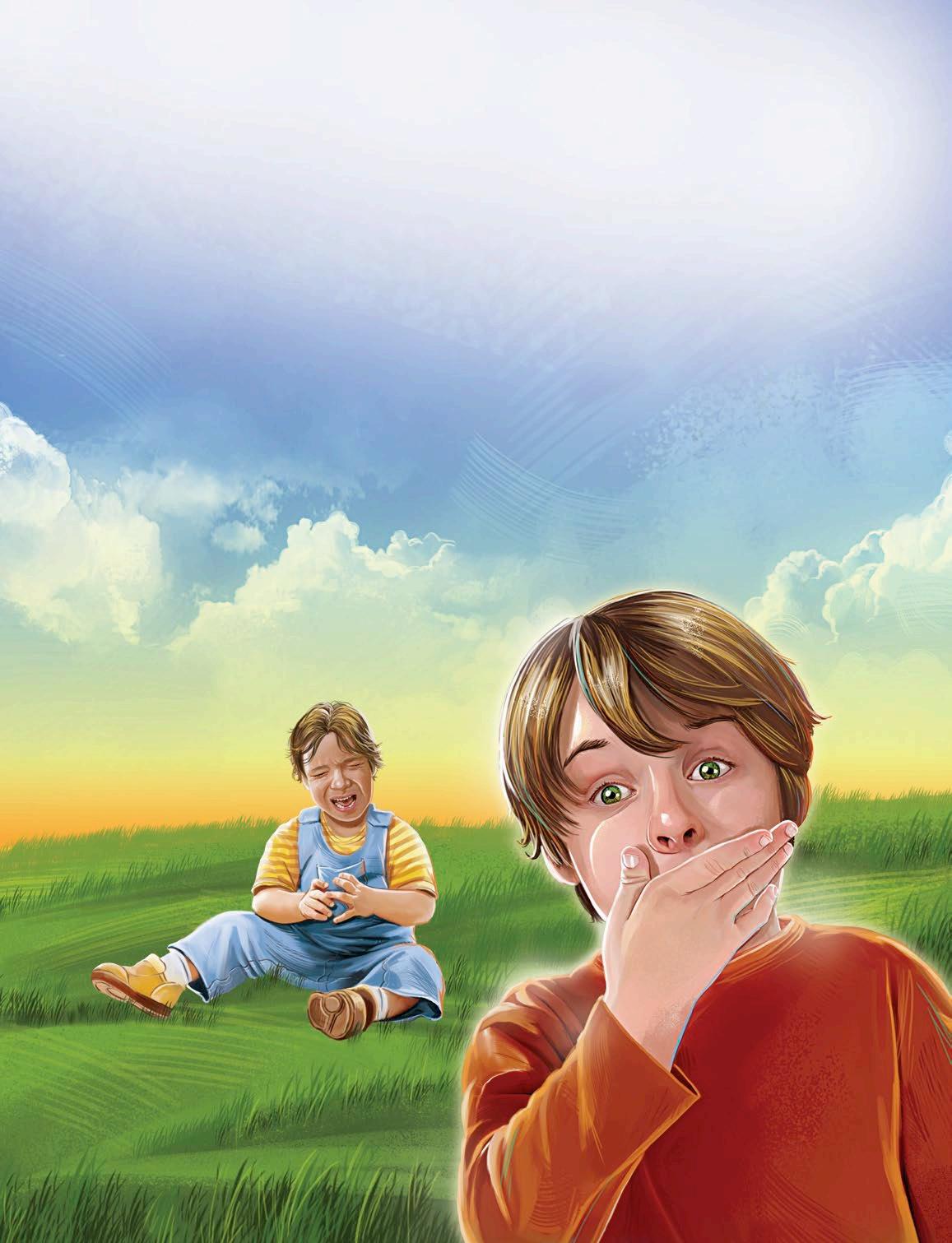


Responsibility of James
It Was My Fault!

Prudence What
Do you like to be close to someone in a bad mood or who is upset? No one likes that type of company, right? We prefer happy, funny people who like to smile. That means long faces drive people away, whereas smiling faces attract people.

Effort
Ricardo’s Defiance

The Child Who Did Not Fail


Creativity
Funny Child Good Mood Curious Albert Curiosity
The Man Who Learned to Be Patient
Ben’ s Transformation
True heroes
Many, many years ago, in the kingdom of Egypt, lived the Hebrew people. There they were slaves and greatly suffered as they were subjected to forced labor. The pharaoh, the Egyptian ruler, feared that the Hebrews would rebel against him; therefore, he ordered the Hebrew midwives to cast any Hebrew newborn male into the great Nile River. But the midwives didn’t follow the pharaoh’s orders, so the pharaoh gave the order to all his people.
During those times a male child was born to one of the Hebrew families that lived there. He was a special child—a great mission awaited him as an adult. To protect him from the soldiers, his mother placed him in a floating basket and left him in the river. A short while later, while she bathed in the river, the pharaoh’s daughter saw the basket. When

she realized it contained a baby, she was surprised. She wanted to keep the baby, and later gave him the name Moses, which means “drawn out of the water.” Since Moses was very young, the princess left him in the care of a nursemaid for her to educate him. Do you know who was the nursemaid? His own mother! And so the child wound up returning to his home.
Jochebed, his mother, could now educate him without fearing the soldiers, as her son was now the son of the princess. One day he too would be a prince.
During that time, the patient mother taught Moses everything that would make him an honorable prince. She taught him that he was a son of God and that he should love Him above anything else, and that God expects all His children to be good, obedient,
How much time do you spend in front of the television or the computer? What about facing a book? Reading is an exercise to develop the brain; however,

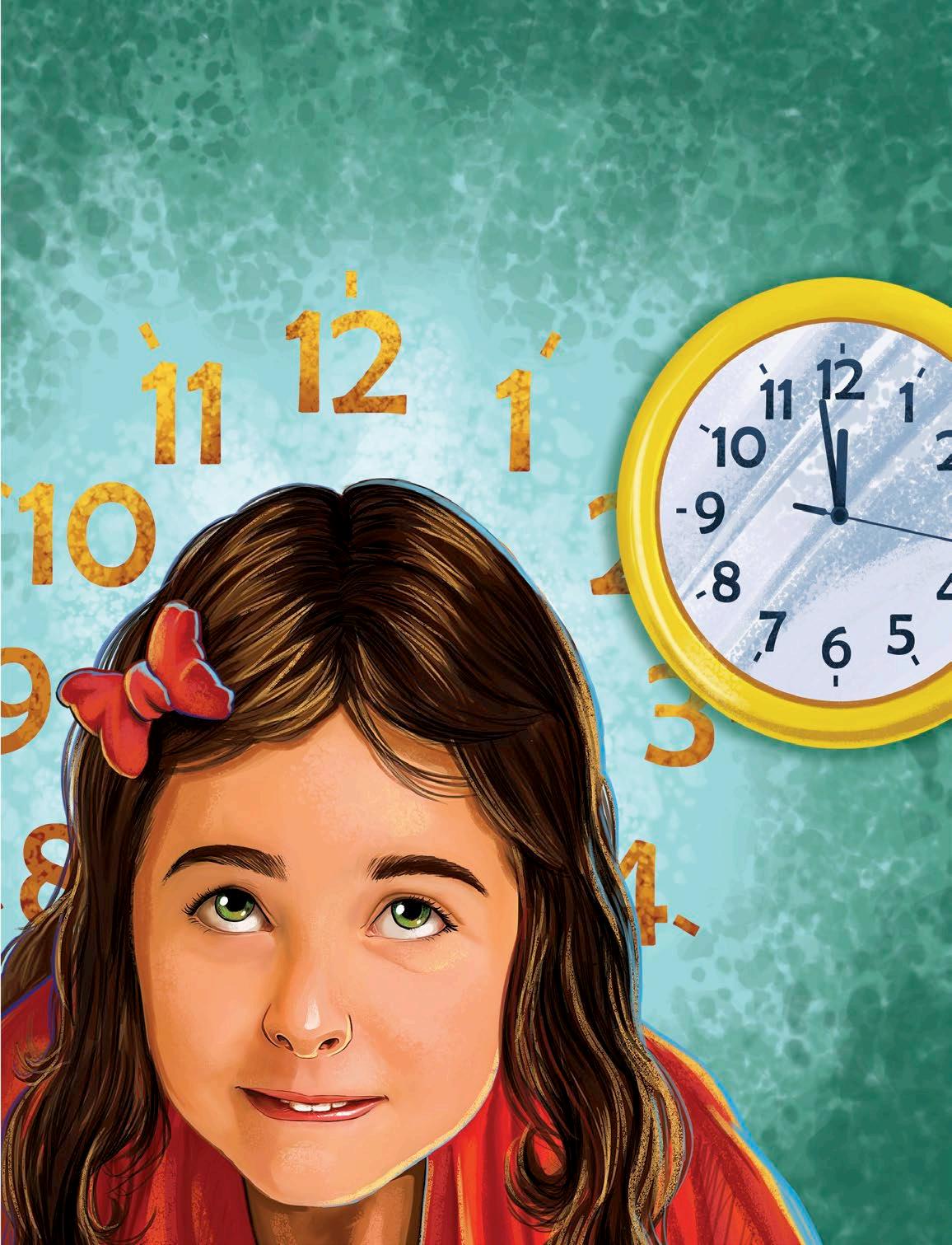
True heroes
Almost every day was the same. Ben and Curtis would return from school, go play soccer with their friends, kill their hunger by “hitting the apples” belonging to the neighbor, and later go to shoot at rats with a compressed air shotgun (BB gun). Next, they would go to their house and be glued to the television. Both knew by heart each channel’s pro- gramming schedule. They were very fami- liar with the sound of shootings and horse hooves from the old Western movies, the laughter from comedies, and the jingles from commercials. Lying on their mother’s bed, the kids barely blinked for hours, mesmerized by the screen.
Their father had died some time ago, and the boys, isolated in their routine, barely had any idea as to how hard their mother stru-
ggled to work as a maid at places in order to get by. The idea of reading a book their minds either. They only played ched television. Then one day realized that Ben, who was in had been getting terrible grades. She was a simple but intelligent and sufficiently wise to understand mething was going wrong in regard sons. She had noticed that there books in the homes in which she day, when she got home, she turned television and immediately told them: my children to make something of in life!”
Ben and Curtis, engrossed in namic and colorful images, were shocked and wide-eyed while their

Patience
Love of Reading
Moral Values







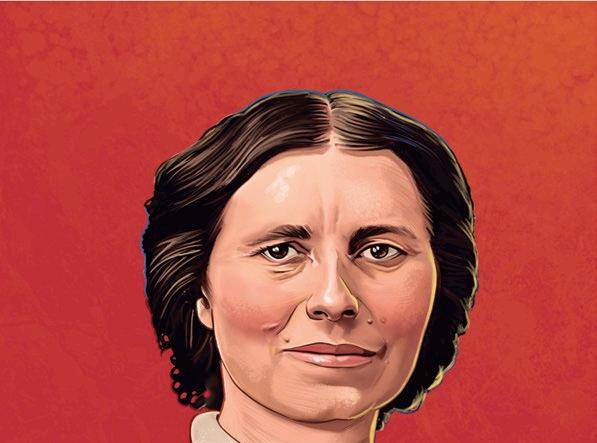 Mirian Montanari Grüdtner
Mirian Montanari Grüdtner
Prologue
On these pages, you will find the stories of moral values exemplified in the lives of individuals to help you build character and achieve excellence. After each story, you will find a section entitled Especially for You. In addition, you will find the section Let’s Get to Work! with a fun activity that lets you experience the proposed value and learn how to integrate it positively into your life. The author, Mirian Montanari, is a teacher and educator with a vast experience, narrates the story of Joseph who exemplified honesty in all circumstances. She also tells the story of Samson who had to pay dearly for failing to learn the importance of obedience, and the story of Rosa Parks who bravely fought for civil rights in the
United States. It also includes the stories of other brave people who dedicated themselves to saving many in the midst of terrible wars. Here you will also discover the importance of respect for others, especially for those who think differently, and for their properties. Furthermore, you will enjoy the stories of real heroes who founded the Ryan’s Well Foundation, the Piney Woods School, the American Red Cross as well as other organizations that continue to help people to this day. We encourage you to discover that and much more for yourself. You could also become a True Hero!

Index Prologue 7 1. Honesty and Moral Integrity 9 2. Obedience 17 3. No Violence 25 4. Courage 33 5. Respecting the Property of Others 41 6. Sincerity 49 7. Respect for Anyone Who Thinks Differently 57 8. Respect for the Opposite Gender and Decent Language 65 9. Gratitude 73 10. Kindness and Sympathy 81 11. Good Manners 89 12. Cooperation and Teamwork 97 13. Tolerance 105 14. Sportsmanship and Fair Play 113 15. Consistency 121 16. Repay Evil with Good 129 5
The Editors
The Silent Strength of Rosa




Joseph’s Choice Honesty and Moral Integrity Courageous Luba use violence win?
No Violence
Obedience
parents can be upsetting at
however, it is preparation for obedience to God.
The World’s Strongest and Weakest Man
Obeying
times;
It Is Not Mine! Respecting the Property of Others

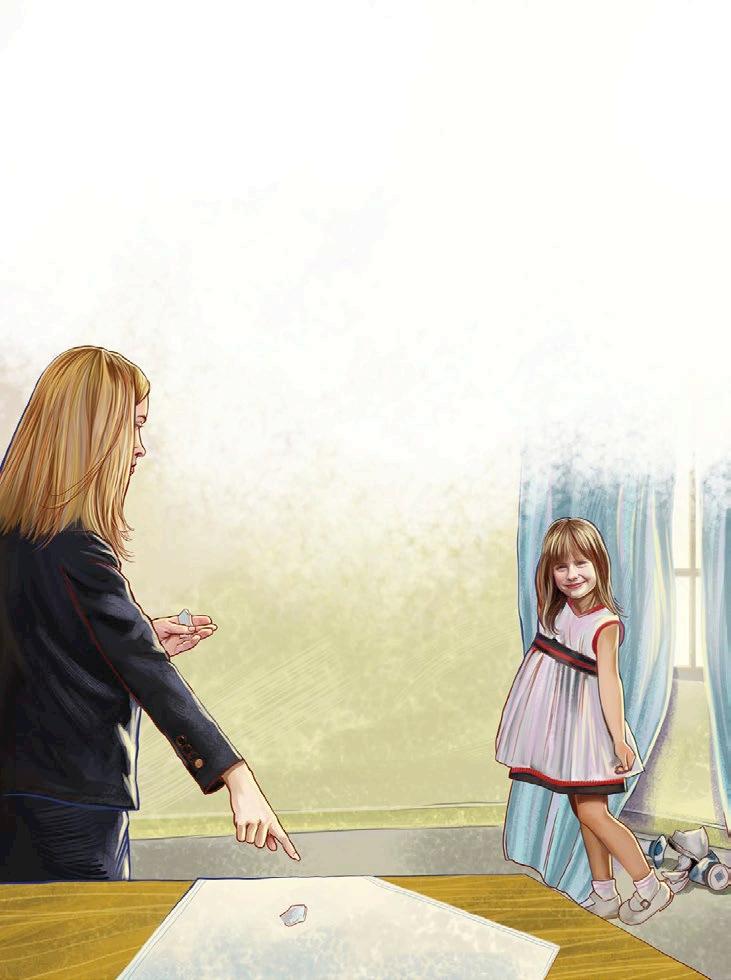
Have you ever thought what it must be like to live under bridge or an overpass? This story began under one of them in of the world’s largest cities, São Paulo (Brazil), in 2012. It is a great example of how honor, character, and honesty are not based on social class.
TheofDefiance Anna
Do you always tell the truth? Have you ever considered that copying during an exam can be a form of lying? I agree with you that telling the truth isn’t always easy, but it will always be worthwhile to be sincere.
Respect for the Opposite Gender and Decent Language
A Joke in Bad Taste


Copying Sincerity
Gratitude
Redemptive Gratitude
True heroes
Claire was born in Budapest, the capital and largest city in Hungary. Her father was well-known since he was the proprietor of an important news agency.
From the time she learned to walk, Claire accompanied her father. On Sundays they would take pleasant strolls. Father and daughter were very close.
Claire was 15 years old at the onset of World War I, during which she lost her father. How sad!
Then came World War II. Now, Claire was a 44-year-old woman and was taken by the soldiers to a large encampment with thousands of barracks surrounded by barbed wire and electric fences, watchtowers with spot-
Kindness and Sympathy
Agnes, the Girl Who Did Something Good for God


lights, machine guns and police dogs. It was Auschwitz, a feared concentration camp in Poland created by the Nazis. You have already read something about Auschwitz in chapter 4 of this volume.
She did not have any possessions or material assets to offer, and sympathy to all those who needed it. Even today her name is
Together with her group, Claire formed a line to be inspected by a well-dressed man, brawny looking and with a friendly appearan ce. It was Dr. Joseph Mengele. The prisoners did not know how evil he was. Those who were able to work were directed to the right by a flick of the thumb. However, the majority of the children, elderly, and the sick were sent to the left: it meant the gas chamber. Claire and other survivors had a number tattooed on their arms and wore dirty clothes


True heroes
Agnes’ parents were Albanians. However, things were not going well in their cou- ntry. There were armed conflicts, gue- rrillas, endless invasions . . . Then the family moved from their native city to another in Ma- cedonia, where the war had not hit so hard. Agnes was born there, the youngest of three siblings. Her father was a prosperous merchant who traveled to Europe buying and selling his products.
Agnes’ family was happy in their comfor- table and loving home. Her mother, devoted to her children, taught them to be kind and to show compassion . . . Everyone in the neigh- borhood knew them for their kindness. They
distributed food, clothes, poor.
Within a short time an spread throughout Europe World War I began. At that 4 years old; by the time the had turned 8. She must have people suffering! Right? Thus, age, Agnes learned not only others’ pain but also to offer order to help them. Agnes was a 12-year-old when the family received father’s death. What sorrow and children!
Social Values




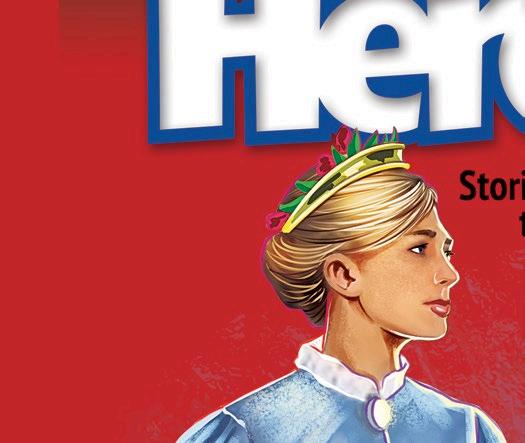





 Mirian Montanari Grüdtner
Mirian Montanari Grüdtner
Prologue
Success often depends on cultivating social values that generate a life of balance and well-being. That is why, in this book, we present stories that reflect those values to help you challenge yourself and also become a real hero. After each story, you will find a section entitled Especially for You. In addition, you will find the section Let’s Get to Work! with a fun activity that lets you experience the proposed value and learn how to integrate it positively into your life.
The author, Mirian Montanari, a teacher and educator with a vast experience, shows how values in the stories contribute to the advancement of society such as the idealism and sense of justice demonstrated in the life of Gandhi,
faithful friendship shown through the story of Hachiko and the determination and faith of Florence Nightingale that led to the advancement of patient care and the development of modern nursing. In addition, she relates the patriotic and social sense of Nelson Mandela, the generosity of the richest man in the world and other important life lessons learned by different people—some after harsh circumstances, severe mistakes, or long years of struggle. Today, we can be grateful to these great men and women who left us with inspiring legacies. On these pages, you will discover how they became heroes and how you can become one too!
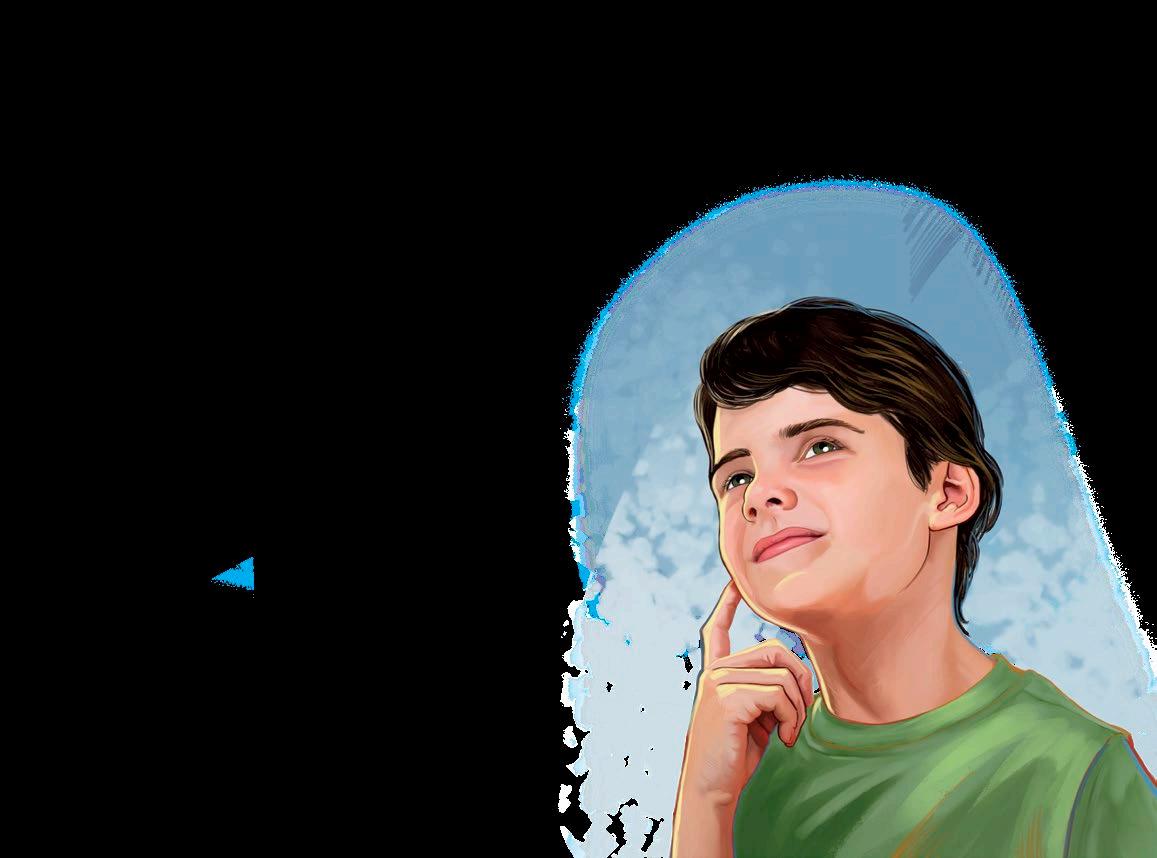
Index Prologue 7 1. Idealism and Sense of Justice 9 2. Loyalty and Faithfulness 17 3. Friendship 25 4. Dedication 33 5. Solidarity and Compassion 41 6. Peace 49 7. Patriotic Sense 57 8. Respect for the Environment 65 9. Freedom 73 10. Generosity 81 11. Moral Courage 89 12. Modesty and Humility 97 13. Altruism 105 14. Hope 113 15. Faith and Trust 121 16. Unconditional Love 129 5
The Editors
Idealism and Sense of Justice



The Father of the Indian Nation
Friendship
Hachiko, a Loyal Friend
Loyalty and Faithfulness
The Saddest Christmas of All
Dedication

The Lady with the Lamp
Solidarity and Compassion
The Silent Hero

A Man of War Who Lacked Peace
How many of us have the courage to show solidarity and compassion, even when it is risky to do so? Nicholas did. And although it was something extraordinary, he preferred to keep it to himself.


Who doesn’t want peace, right? There is even the International Day of Peacekeepers, celebrated on May 29. This is the story of a man who manufactured weaponry; yet what he desired most was peace.

PE A CE PEACE
Peace
because of the colorlearn
Freedom
Martin’s Dream
Generosity
The Wealthiest Man in the World
True heroes
True heroes
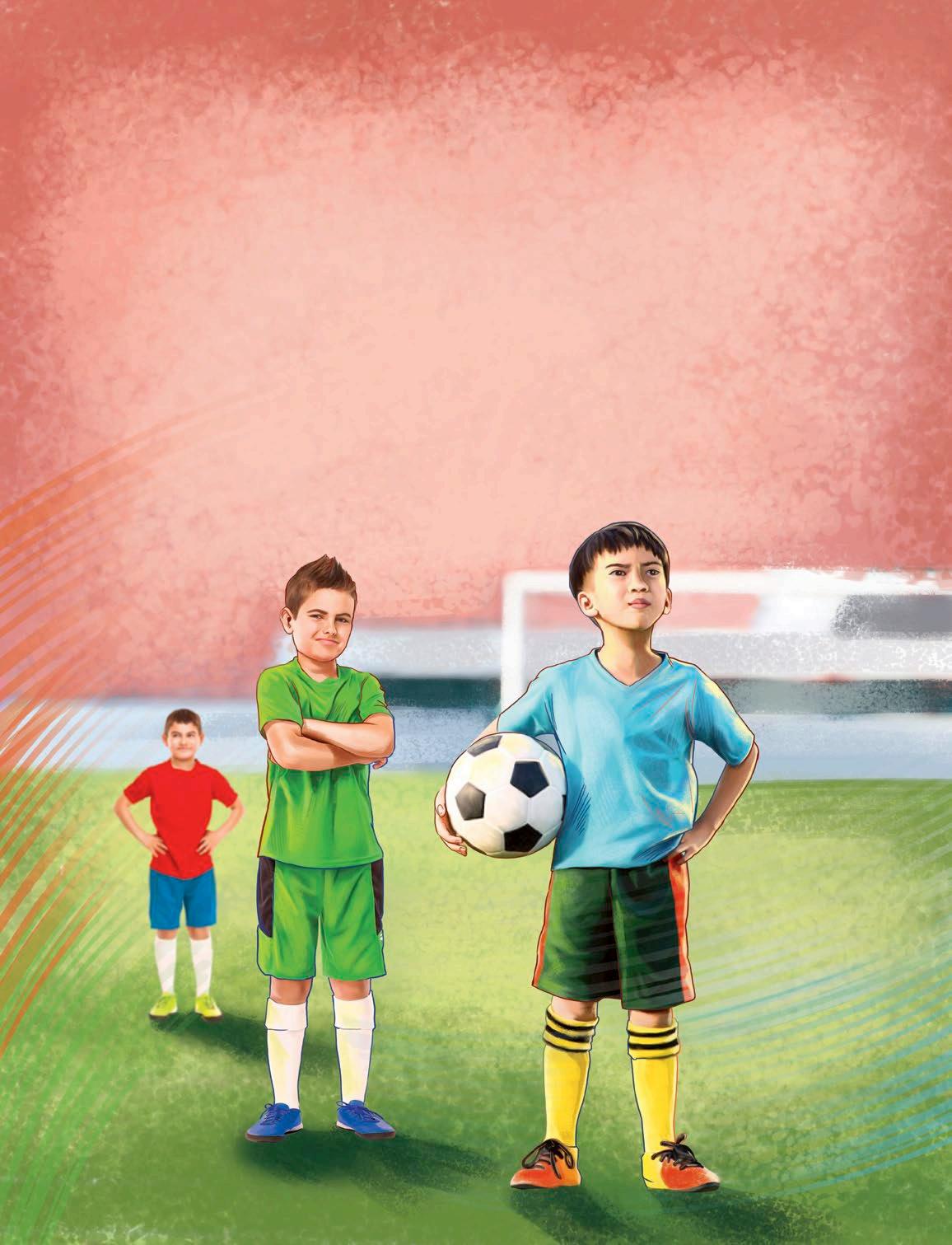
John was the second of six children. When he was still a child, he did chores at home to earn some money. Later he sold pota- toes, snacks, and turkeys. At the age of 23 a portly John started his first business and be- gan to prosper. He worked hard, and at the end of 10 years he had already made his first $1 million. He dedicated every waking hour to his work, and at the age of 43 he owned the world’s largest company in the oil industry, Standard Oil Company. However, John had such a huge burden of troubles and stress that he was ill and sad all the time and had lots of enemies. An acquaintance of his told him, “John, you look terrible. You are the oldest man I have ever seen.” He started losing hair from his head, and later, also his eyelashes, eyebrows, and mustache. He was left with no hair on his body. He had a very aggressive form of an illness called alopecia. He was unrecog- nizable, and people said that he looked like a mummy. Each week he earned $1 million. It’s a lot of money! But his stomach would function so poorly that he was able to eat only cookies with milk.
to think only of oneself! People like that end up because their selfish attitudes drive other people away.


Isolated from people, John did not have a social life. When it was absolutely necessary to go out, he would wear a wig to disguise hisJohnugliness.wanted to be loved, and did not un- derstand why he was hated so much. The large amount of money that he had accumulated did not provide him peace or happiness. In reality, while seeking to protect and control his wealth, he discovered that it was destroying him. He was not able to sleep, eat, or enjoy anything. He was so desperate and weak that he felt like a child who had dedicated a lot of time to buil- ding a sand castle and then could only watch as the waves destroyed his work. The cookies that John, with a bad tem- per, managed to eat no longer sustained his weakened body. Observing him becoming increasingly thin and downhearted, everyone expected his death. The doctor had not given him more than a year to live, and journalists already had a draft of his obituary saved in their files.
John had not worried much about others. Many times he had caused detriment to defen- seless individuals in an attempt to make more
Michael was the middle child of the King family. He was born in Atlanta (Georgia, U.S.A.) and grew up in a 13-bedroom home in the best black neighborhood in the city. After his birth, his father changed his name to Martin Luther. The King family was Christian. The father was a respected pastor in the Baptist Church. Martin had an admirable voice, and his parents thought he would become a singer. He sang with the church choir in Atlanta at the premiere of the movie Gone With the Wind. Slavery, abolished after the War of Secession (Civil War), was a sad episode in North American History. Howe-

Stories are one of the most effective ways of delivering great lessons. It is possible that you still remember some of the stories your parents used to tell you. It is also possible that you are captivated by stories you see on TV, lms, the Internet and read in good books.



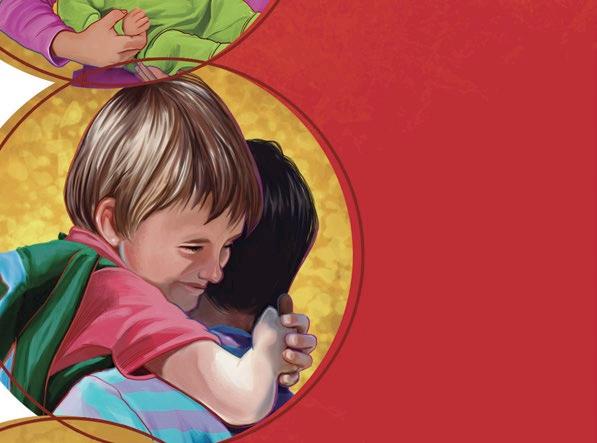
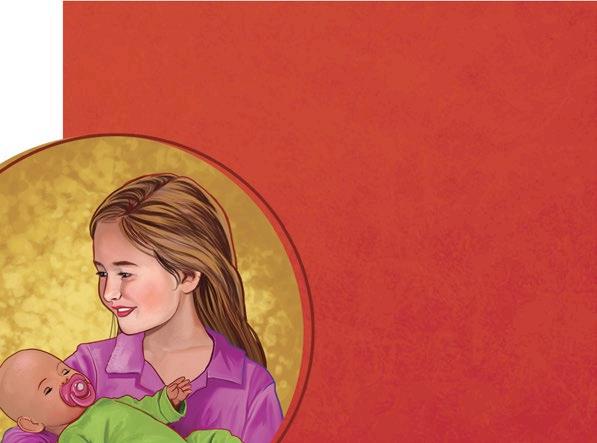
Everybody has a story to tell. However, not all the stories teach us positive lessons to help us become better persons. Some have little to offer, are unnecessary and are even harmful to the listeners. True Heroes is an extraordinary collection of good stories that showcase the most important values that can be cultivated in people’s lives. This book presents the lives of some historical gures in simple and attractive ways to help you learn from them. These heroes were not highly gifted; they did not have supernatural features. They were just ordinary men and women like most of us. But what have they done to receive such recognition? The answer is very easy but very complex at the same time: they lived above-average lives and were driven by a noble mission and purpose in life. The values they developed, their reactions in the face of adversity and prosperity and their attitude in dealing with apparently insignicant situations in life inuenced the great decisions they made which later shaped their destinies.
True Heroes includes stories about honesty, obedience, sincerity, gratitude, patience, consistency and many other values that will help you be successful regardless of your ethnicity, nationality or social status, so you too can become a true hero! Are you up for it?
ISBN 978-84-7208-594-7


















 Mirian Montanari Grüdtner
Mirian Montanari Grüdtner





















 Mirian Montanari Grüdtner
Mirian Montanari Grüdtner























 Mirian Montanari Grüdtner
Mirian Montanari Grüdtner

























